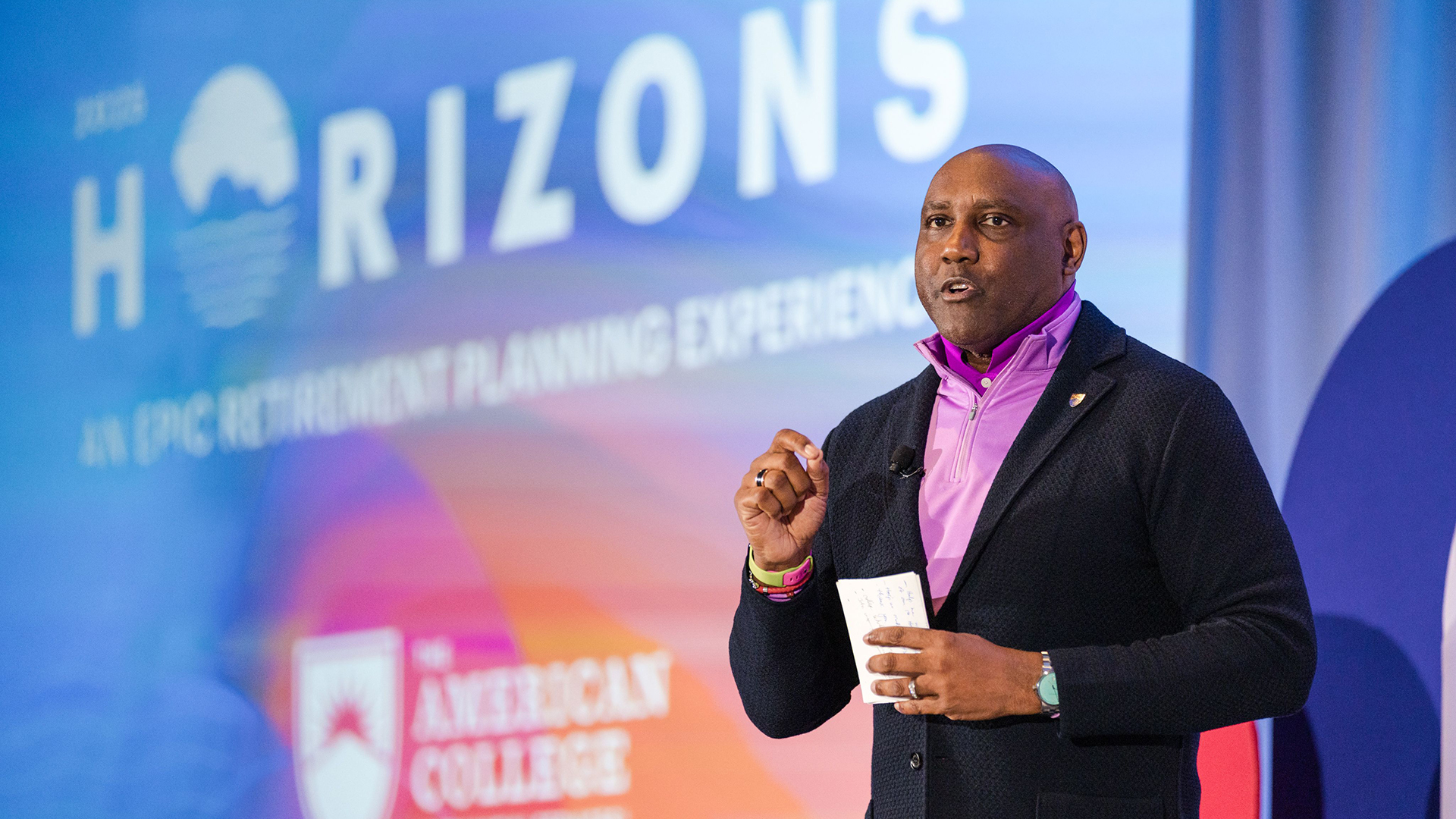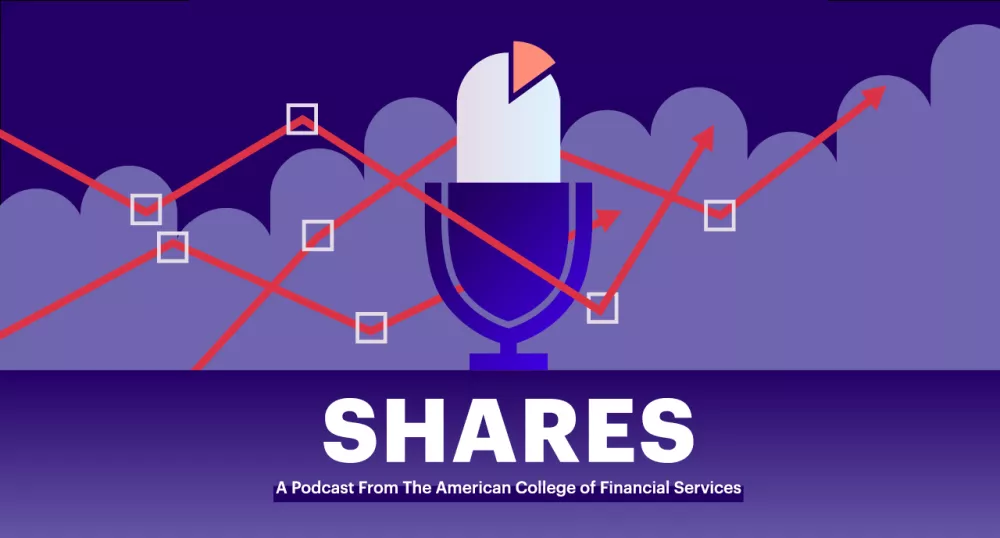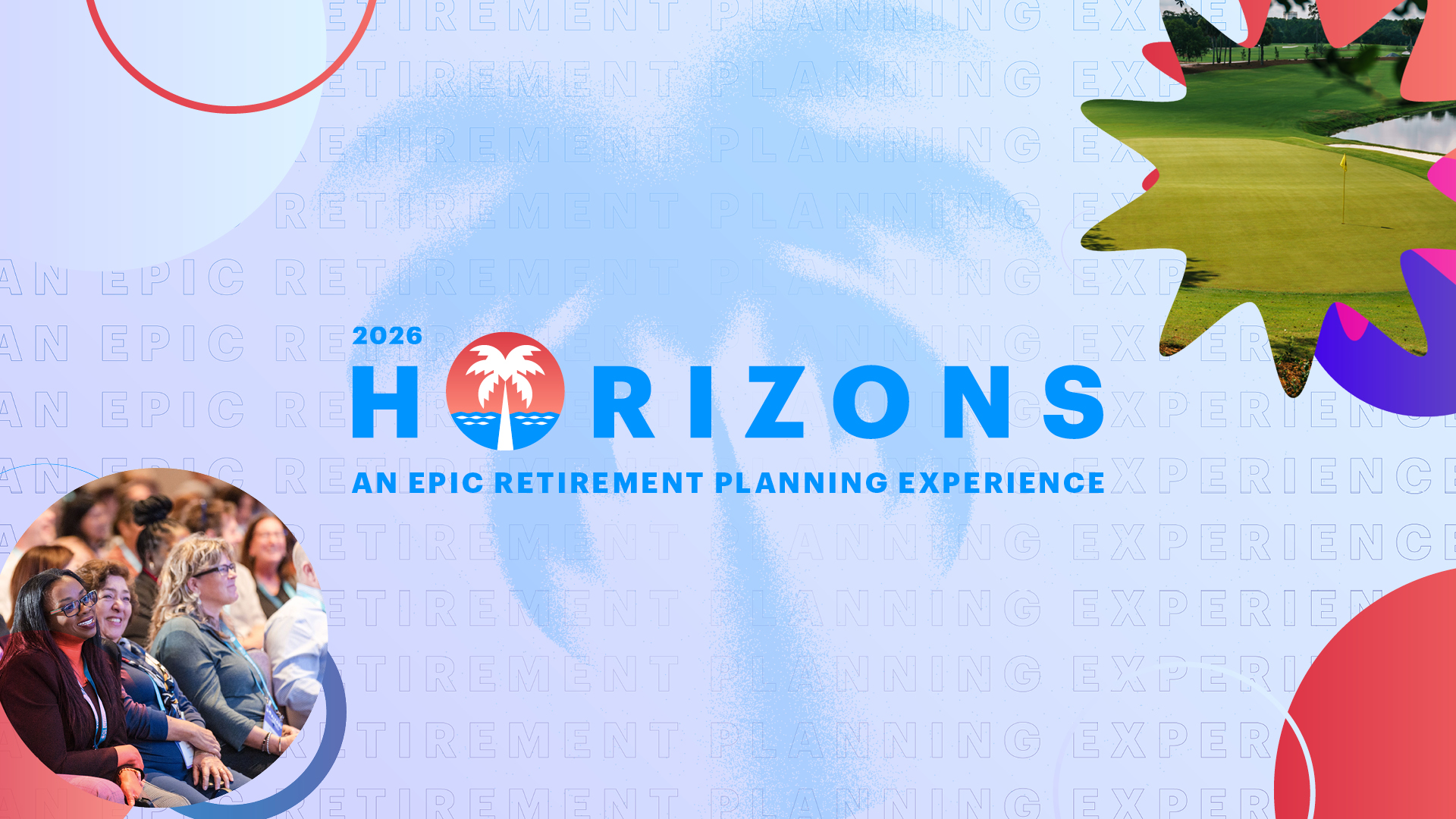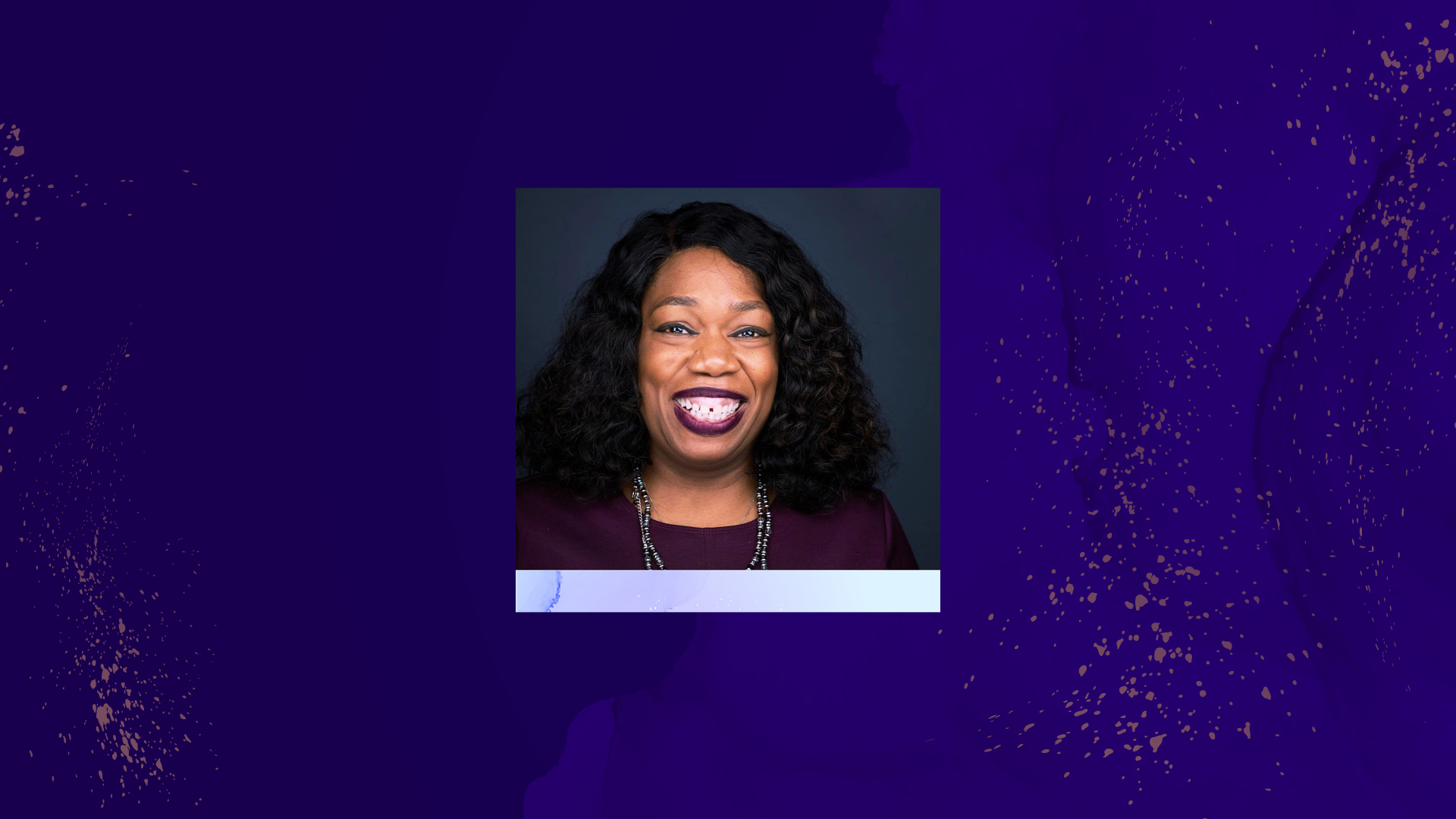
CFP®, ChFC®, CLU®
Practice Management Insights
The Future of Advice

With artificial intelligence (AI) on the rise in nearly every facet of modern life, the financial services industry stands on the brink of a transformation more profound than any it has seen before. However, contrary to the dystopian fears that often accompany discussions of AI, the whitepaper’s central message is clear: the future belongs not to machines alone, but to the powerful partnership between technology and human empathy, with trust as the ultimate differentiator.
What Will Be AI’s Greatest Impact?
One of the most striking predictions in the whitepaper is that technology’s greatest achievement will be its own invisibility. As AI and automation become more sophisticated, they will recede into the background, allowing the human side of advice to take center stage. As the article states, “The more technology recedes from view, the more human the experience becomes.” Rather than replacing advisors, technology will automate the administrative and analytical tasks that once consumed their days, freeing them to focus on what matters most: building meaningful client relationships and personalized advice.
This shift is already underway. Today, most firms operate with what the paper refers to as a “Frankenstack” — a patchwork of disconnected platforms and tools. By 2030, AI will serve as the connective tissue, seamlessly integrating data and automating routine processes. As one contributor shared, “Tech is the scale enabler. It allows advisors to be human.” The statistics are telling. According to research cited in the paper, most firms currently use only about 40% of their technology’s capabilities, highlighting the vast untapped potential for efficiency and client engagement.
Advancing Advice Through Human Relationships
As technology takes over the menial and repetitive tasks of advising, humans are given more opportunity to focus on the purpose of an advisor-client relationship. Advisors will be valued not for their ability to crunch numbers, but for their capacity to listen, empathize, and translate complex financial concepts into actionable, personalized guidance. In summarizing this point and how it will impact the future of advice, the whitepaper contends that, “Empathy acts as the advisor’s operating system, then trust becomes the product.”
This is more than theory. According to “Advice 2030”, only 11% of clients currently receive comprehensive, multidisciplinary advice, while 42% receive transactional advice and 46% receive planning-focused guidance. As technology automates the transactional, advisors have a unique opportunity to move up the value chain, delivering the kind of holistic, life-centered advice that clients increasingly demand.
In a world where investment products are commoditized and information is ubiquitous, trust and responsiveness become the true differentiators. The whitepaper attests, “The winning firms will be those that deliver confidence faster, clearer, and more transparently.” Firms are urged to “track speed as a trust metric” and to make “speed = care” a firm motto. As one contributor stated, “Speed is the new sincerity. The advisor who can show up with clarity and empathy in five minutes will win over the one who needs five days to perfect the plan.”
Clients are also seeking more holistic support. A striking 66% now say they want to discuss their mental and physical wellbeing with their advisor. This serves as proof that financial planning is no longer just about numbers, but about supporting clients in all aspects of their lives.
The Power and Responsibilities of Teaming With AI
As is well known, the predictive power of AI and the explosion of data brings legitimate concerns about AI overstepping its boundaries. The whitepaper does not shy away from these issues. Azish Filabi of The American College of Financial Services cautions, “In an age where AI makes it easy to capture and analyze every client interaction, we must be especially vigilant about privacy, fairness, and the stories our data tells — or doesn’t tell. Ethical advice delivery means remembering that behind every data point is a person and a context, so we have to go beyond the numbers and consider the responsibilities we carry as stewards of both information and trust.”
Regulatory oversight is also expected to increase. Bonnie Treichel of Endeavor Retirement notes, “Regulators are going to require that someone is responsible for the AI engagement whether data, private information, or even recommendations ... licensing and legal liability will drive acceptable use of advanced technology.”
The whitepaper recommends transparency as a best practice: “Disclose your digital DNA. Write a short AI and data ethics statement to share with your clients that shows how technology supports your human judgment instead of replacing it.” Robert Kirk of Intergen Data adds, “The real ‘wow’ isn’t just what the numbers say; it’s how we use that knowledge — communicating with empathy, protecting privacy, and making sure clients understand the journey ahead, not just the data point.”
Continuous Learning and Adaptability as Advice Differentiators
The pace of technological change is relentless, but the whitepaper argues that adaptability and continuous learning are the ultimate skills for future-ready advisors. Advisors who can offer specialized knowledge that perfectly meets the needs of a client will stand out from the sea of algorithmic advice. According to our own Chief Marketing Officer Jared Trexler, “Advisors must be adaptable and able to differentiate themselves by delivering real client value. At The College, we’re focused on these changing needs through extensive generational research and by developing cutting-edge programs and new designations like our tax planning certification, our fastest growing designation in our 100 year history.”
Ultimately, “Advice 2030” makes a compelling case that the future of financial advice is not about choosing between humans and technology, but about harnessing the strengths of both. As AI and automation make capacity abundant, it is empathy, trust, and adaptability that will remain scarce — and therefore, invaluable. The firms and advisors who thrive will be those who use technology to amplify their humanity, delivering advice that is not only smarter and faster, but also more personal and meaningful. In the end, it is not the machine, but the human at the center of the relationship, who will define the next era of financial guidance.
More From The College
- Read about responsible use of AI
- Learn more about client trust with the Trust Certificate Program
- See more research from The College
From The President Insights
An Epic Retirement Planning Experience Returns

When I joined The College nearly seven years ago, I saw its potential as a convener in the financial services industry: an educational and institutional leader to bring important conversations about the planning profession to the forefront. And none felt more important to me, or remains as critical today, as retirement planning.
Along with my leadership team, I knew I wanted to position The College as a leader in the retirement planning space — and with our Retirement Income Certified Professional® (RICP®) designation program already powering our reputation for quality, applied education across the profession, we’ve made great strides. But you may have noticed that here at The College, we also put a lot of time and effort into and take a lot of pride in the fantastic enterprise events we host each year. I wondered: what if we could bring that kind of energy, community, and experience — and pair it with The College’s deep knowledge and vast network of experts in the field — to an experience that was 100% retirement planning-focused?
This March, we answered that question as we held the inaugural Horizons event in beautiful Coronado, California — and it exceeded all my hopes and expectations. With that in mind, I’m very excited to announce that Horizons is returning in 2026, and we’re doing everything we can to make it even better than the first one. Better doesn’t mean bigger, though; we’re committed to keeping it intimate, even if that means selling out early (like we did last year).
“An all-star game for retirement planning.” “The best industry event I’ve ever been to.” “Unlike any conference I’ve ever attended.” These were just some of the things I heard from attendees as I made my way around Horizons 2025, and I couldn’t agree more. Horizons isn’t just another financial services conference: it’s changing the way our industry approaches events, incorporating unique and personalized experiences that feel like a five-star vacation or retreat and pairing them with practical, applicable knowledge delivered directly from the top minds in retirement planning today.
Watching this year’s Horizons event was pure magic, and we’re leaning even more into that feeling with our 2026 location in sunny Orlando, Florida — right next to Walt Disney World and Universal Orlando. The event is still coming together, but I can tell you it’s going to be even more epic than the first, with personalized experiences, a scholarship golf classic, headlining speakers in retirement planning, and more.
You can register for Horizons 2026 now — and I hope I’ll see you there!
Subscribe to Newsletter
Related Posts
The Future of Advice
View DetailsAbout The College Podcasts
Making Waves in 2025 and Looking Ahead to 2026

In this special year-in-review episode of the Shares podcast, listen in as leaders from The College look back on 2025 and discuss how we’ve worked to fulfill the mission to better society through financial education, as well as where they see these programs taking The College in 2026 and beyond. They’ll cover topics such as the Horizons conference, the Tax Planning Certified Professional® (TPCP®) program, and more expansions to The College’s learning platform that position us to offer expertise for every stage of a professional’s career and their clients’ lives. They’ll also talk about new and upcoming partnerships, such as The College’s partnership with Achievable, their expectations for the twentieth anniversary of the Conference of African American Financial Professionals, and more.
George Nichols III, CAP®, currently serves as the 10th president and CEO in the storied history of The College. Nichols joined The College after a 17-year stint at New York Life, where he held principal roles in sales, P&L, strategic initiatives, and public policy. In 2007, Nichols was named to the company's executive management committee. He also served as executive vice president in the Office of Governmental Affairs.
Nichols has been acclaimed for his efforts to drive transformative change in the financial services profession and elsewhere. Savoy, a leading Black business and lifestyle magazine, named him among the "Most Influential Black Corporate Executives" twice: in 2012 and 2018; and among the “Most Influential Black Corporate Directors” in 2021. He was named to Forbes' inaugural 2021 edition of "The Culture 50 Champions." Nichols was honored as one of "The Ten to Watch in 2021" by WealthManagement.com, and in 2022, he won a ThinkAdvisor Luminaries award for Executive Leadership, followed by InvestmentNews’ recognition in 2023 for the year’s See It, Be It role model. Additionally, Nichols is the inaugural recipient of the Alonzo Herndon Award by Business Insurance Magazine.
Jared Trexler serves as a senior vice president and chief marketing and strategy officer at The American College of Financial Services. In this role, he leads branding, strategic and executive communications, digital media, events, and demand generation efforts, as well as overseeing the growth of The College's three strategic focus areas. Trexler previously served as director of strategic and executive communications at The College, working with President and CEO George Nichols III, CAP®, and The College’s leadership team to draft compelling narratives that best communicated strategic initiatives, new education programs, and the missions of The College’s Centers of Excellence. He is a past recipient of the Mary Varner Award for Exemplary Service, The College’s highest honor for professional staff.
Any views or opinions expressed in this podcast are the hosts’ and guests' own and do not necessarily represent those of The American College of Financial Services.
More From The College
- Learn about how The College helps advisors specialize
- See how The College and Achievable are working together
- Explore the TPCP® program
Author
Subscribe to Newsletter
Related Posts
South Florida Alumni & Student Reception
About The College Retirement Planning Press
Horizons 2026 Retirement Conference

KING OF PRUSSIA, PA – December 2, 2025 – The American College of Financial Services is proud to announce the return of Horizons: a one-of-a-kind educational experience that will bring together the brightest minds in retirement planning to explore innovative strategies and solutions for today’s dynamic retirement landscape. The College holds Horizons to hone the skills of retirement practitioners; positioning it as the largest convening of academics and advisors focused on the pre- and current retiree market.
Hosted May 4 to 6, 2026, at the Hyatt Regency Grand Cypress Resort in Orlando, Florida, Horizons offers an exclusive, immersive event experience 100% focused on retirement planning topics.
Horizons is intentionally intimate with focused networking events and an industry-leading staff-to-attendee ratio, exceptionally experiential through the inclusion of activities that uniquely showcase the host city of Orlando, and specifically specialized with intensive sessions on retirement income planning, longevity planning, tax planning, legacy and estate planning, and more. The conference will feature researchers, industry thought leaders, and some of the top financial advisors in retirement planning today.
“Horizons 2025 was epic because of our attendees, speakers, and sponsors,” said George Nichols III, CAP®, president and CEO of The American College of Financial Services. “This event embodies The College’s pursuit of excellence, and we’re hoping it will be the same for everyone who attends in 2026. Retirement planning knowledge is more important than ever, and we’ve built Horizons to be the place to convene those serious about serving today’s retirees.”
The dynamic agenda is available now and features speakers including:
- Denise Appleby, APA, AKS, CISP, CRC®, CRPS®, CRSP, CEO and Founder, Appleby Retirement Consulting Inc.
- David Blanchett, PhD, MSFS, CFA, CLU®, ChFC®, CFP®, Managing Director, Portfolio Manager, and Head of Retirement Research, PGIM DC Solutions
- Sharon Carson, CRPC®, Executive Director, Retirement Insights Strategy, J.P. Morgan Asset Management
- Jean Chatzky, CEO and Co-founder, HerMoney Media
- Michael Finke, PhD, CFP®, Professor of Wealth Management, Wealth Management Certified Professional® (WMCP®) Program Director, The American College of Financial Services
- Jeffrey Levine, CFP®, CPA/PFS, ChFC®, RICP®, CWS, AIF, BFA™, Chief Planning Officer, Focus Wealth Partners
- Wade Pfau, PhD, CFA, RICP®, Founder, RISAProfile.com
- Ed Slott, CPA, Founder and CEO, Ed Slott and Company
…and many more!
Attendees of Horizons 2025, held March 2025 in Coronado, California, gave the event rave reviews, with many saying it was one of the best professional events they had ever attended. This distinction played a role in Horizons securing recognition at the 2025 WealthManagement.com Industry Awards and a top spot on Kitces’ “17 Best Financial Advisor Conferences to Attend In 2026.”
“The breadth of the topics was fantastic, and the depth of the knowledge from the speakers was simply the best,” said Caleb Hanke, MBA, ChFC®, CPCU, API. “Even the knowledge from the crowd and the interaction back and forth was great as people asked questions and challenged assumptions.”
“If retirement planning were a sport, this would be an all-star game,” said John Suszynski III, RICP®, adding, “It was one of the most thought-provoking conferences I have ever attended.”
Unlike traditional industry events, Horizons offers an agenda free of sales presentations. Instead, attendees will have the opportunity to engage with star speakers and top-tier experts, offering practical knowledge and applicable insights that directly enhance client relationships and business outcomes. Continuing education (CE) credits will also be available for qualifying sessions.
But it’s not all about learning. Horizons fosters connections and offers relaxation. The event features exclusive networking opportunities, themed experiences, and a scholarship golf tournament, ensuring a well-rounded and memorable time for all attendees.
“We saw industry events ripe for disruption,” said Jared Trexler, senior vice president, chief marketing and strategy officer. “While others disrupted the wealth management ecosystem, we’re disrupting the retirement planning ecosystem in our own unique way. Horizons is education first – the largest convening of academics and advisors at the intersection of client service – but it’s purpose built with soul, think themed events, experiences that soak up Orlando’s culture and history, and inside-outside intentionality.”
For more information and to register, visit Events.TheAmericanCollege.edu/Horizons.
###
ABOUT THE AMERICAN COLLEGE OF FINANCIAL SERVICES
The American College of Financial Services is the nation’s largest nonprofit and accredited educational institution devoted to financial services professionals. Nearly one in five advisors or agents is an alum of The College. The College offers a learning platform that includes professional designation, certification, and degree programs and encompasses early-career foundational knowledge as well as deep, specialized education in tax, retirement income, philanthropy, risk management, and more with the highest-quality combination of rigor and relevance. The College’s faculty represents the foremost thought leaders in the financial services industry. Its educational programs, research, and events offer professionals the opportunity to expand earnings, deepen relationships, and deliver improved client outcomes.
Visit TheAmericanCollege.edu to discover all the ways to gain expertise for every stage.
###
Contacts:
Sarah Tremallo
908-967-0381 / Stremallo@jconnelly.com
Jared Trexler
610-526-1268/ jared.trexler@theamericancollege.edu
About The College Insights
News Roundup: November 2025
Investopedia | CFP vs. CLU vs. ChFC: Which Financial Credential Is Right for You?
October 28, 2025
This article breaks down some of the leading financial credentials — including The College’s Chartered Life Underwriter® (CLU®) and Chartered Financial Consultant® (ChFC®) designations — and offers guidance on determining which to acquire.
ThinkAdvisor | Lines Blur Between Estate Planning and Retirement
October 28, 2025
In this article, Steve Parrish, JD, RICP®, CLU®, ChFC®, AEP®, explains the importance for affluent clients to understand the distinction between legacy, estate, and retirement planning, and how the lines often blur.
ThinkAdvisor | The Future of Advice Is About Planning, Not Just Portfolios: Jeff Levine
October 30, 2025
In this interview with Professor of Practice Jeffrey Levine, CFP®, CPA/PFS, ChFC®, RICP®, CWS, AIF, BFA™, MSA, he discusses the future of the profession and end-of-year tax tips.
Forbes | Getting To Know You Tuesday: Sophia Duffy
November 11, 2025
In this interview with Tax Planning Certified Professional® (TPCP®) Program Director Sophia Duffy, JD, CPA, AEP®, she shares insights from her career journey and speaks to technology’s role in the future of financial planning.
InvestmentNews | goRIA On-Location with Jared Trexler
November 6, 2025
Chief Marketing and Strategy Officer Jared Trexler discusses the TPCP® Program and how The College believes specialization is the future of the financial services profession.
NYSE | George Nichols of The American College of Financial Services Joins Floor Talk
November 14, 2025
College President and CEO George Nichols III, CAP®, discusses The College’s first-ever consumer awareness and engagement campaign on the floor of the New York Stock Exchange.
About The College Insights
2025 Women Working in Wealth Award

The Women Working in Wealth℠ Award celebrates women who inspire, mentor, and strive to help others advance in the financial services profession.
Michele Matchett Godfrey MBA, ChFC®, AFC®
Michele Matchett Godfrey is a transformative and results-driven leader with a distinguished record of fostering sustainable change and enhancing financial health across military, corporate, and banking sectors. As a business development manager leading strategic partnerships and programming for higher education initiatives at JPMorganChase, Godfrey spearheads initiatives to design and implement strategies that assess and promote financial health programs tailored to meet the diverse needs of students, faculty, and staff members of communities across the wealth spectrum.
In her role, Godfrey serves as a subject matter expert on financial health, leveraging her expertise to align programming, share best practices, and collaboratively address economic stability challenges. She expertly designs program metrics and success indicators that support the organization's key performance indicators (KPIs), ensuring that initiatives deliver measurable impacts on financial well-being. By acting as a liaison between various lines of business, Godfrey fosters collaborations that drive firmwide financial health objectives.
Godfrey’s commitment to excellence extends nationally and locally, as she actively engages with various nonprofit and policy organizations focused on economic security and financial empowerment. Her involvement with the Financial Literacy Education Commission (FLEC), Project REACH, the National Endowment for Financial Education (NEFE), and the Financial Health Network underscores her dedication to advancing impactful policy initiatives and educational programs.
Her extensive background in program development is complemented by her credentials as a certified Accredited Financial Counselor® (AFC®) and her past leadership as the personal financial management and career services program manager for Marine Corps Community Services. Here, she directed the strategic execution of financial literacy programs, achieving significant increases in engagement and recognition for excellence.
Godfrey’s contributions as a community affairs specialist with the Federal Deposit Insurance Corporation (FDIC) and as a financial readiness program manager for the United States Army Garrison demonstrate her versatile expertise and ability to integrate corporate social responsibility with financial readiness, advocating for initiatives that deliver lasting societal benefits.
With a master's degree in business administration from Hawaii Pacific University and a bachelor’s degree in finance, Godfrey continues to be a thought leader and visionary in corporate social responsibility and community engagement, dedicated to driving initiatives that empower communities and foster economic resilience. Godfrey is active in her community as a member of the Prince William County Alumnae Chapter of Delta Sigma Theta Sorority Inc., where she leads youth programs that empower and educate youth in the community. She is also active in military spouse clubs and mentors military spouses by helping them get acclimated to the military lifestyle while navigating their personal and professional goals.
Godfrey is the proud spouse of an active-duty marine, Jerry Godfrey, and the mother of two children Alexander Joel and Alyssa Mckenzie.
More From The College
- Continue to support our mission and the future of financial services
- Learn more about the 2025 President’s Dinner honorees and current updates from The College.
About The College Insights
2025 NextGen Financial Services Professional Award

First established in 2016, the NextGen Financial Services Professional Award celebrates the next generation of financial professionals, under the age of 40. These leaders have significantly contributed to the profession, while demonstrating a desire to give back to their communities.
Aaron Gose, ChFC®, FSCP®, RICP®, WMCP®
Aaron Gose studied civil engineering and finance at the University of Colorado, Denver. He spent nearly six years as a HUNCH Engineer with NASA focusing on hydrology in micro-gravity environments and as a Civil Engineering professional with the Mile High Flood District focusing on stormwater management systems. His love for problem solving extended beyond the engineering world with a career shift to finance in 2021.
He is the principal financial advisor at the Engineer's Financial Group LLC with a focus on helping clients in the engineering market. He is FINRA Series 6, 7, 63, and 65 licensed. In his additional studies, Gose has earned numerous designations from The American College of Financial Services, including the Chartered Financial Consultant® (ChFC®), Financial Services Certified Professional® (FSCP®), Retirement Income Certified Professional® (RICP®), and Wealth Management Certified Professional® (WMCP®).
In his free time, Gose is a Firefighter with the Snohomish County Fire District #5. He holds Firefighter 1 and Hazmat certifications from the Department of Fire Prevention and Control.
Gose lives with his beautiful wife, Michelle, who is his backbone and constant motivation to live the most fulfilling life. Without her support, none of this would have been possible.
Mariana Llamas, CFP®
[Body] Mariana Llamas is an associate financial planner at Brio Financial Group, with over eight years of experience in the financial services industry. She works closely with non-traditional individuals and families, helping ensure their financial plans align with the lives they aspire to live. As a proud first-generation Mexican immigrant, Llamas brings cultural fluency and empathy to her work, empowering clients and peers alike through financial education and community building.
Her commitment to equity and access has guided her involvement in various initiatives, including mentoring first-generation college students, leading financial literacy workshops for underserved communities, and advising industry leaders on inclusive hiring practices. Llamas served two years on The American College of Financial Services’ NextGen Task Force, advocating for the retention and development of diverse talent within the profession. Whether on stage speaking to RIA firm owners or organizing peer mastermind groups, she is dedicated to fostering connection and driving meaningful change in the financial planning profession.
More From The College
- Continue to support our mission and the future of financial services
- Learn more about the 2025 President’s Dinner honorees and current updates from The College.